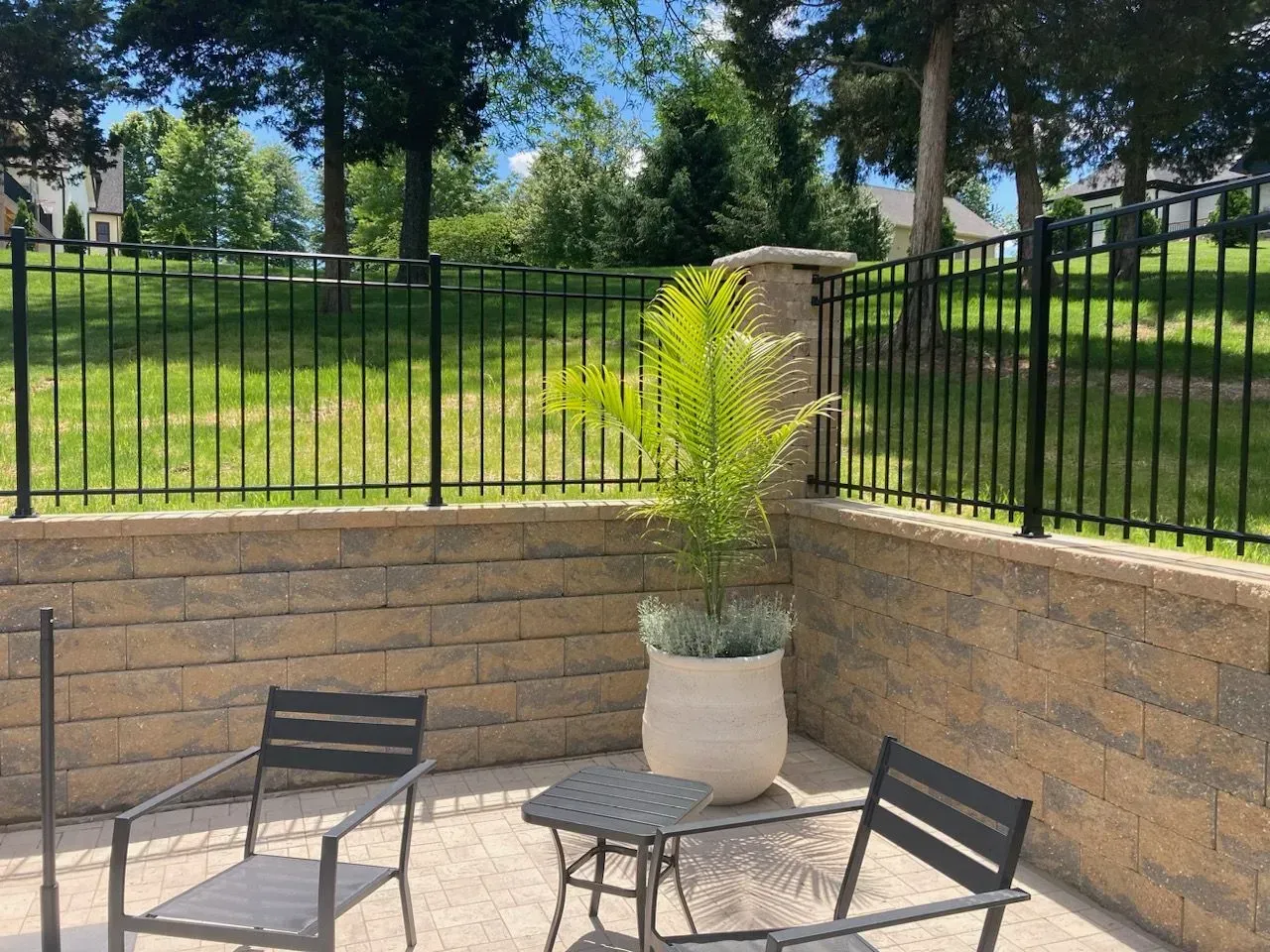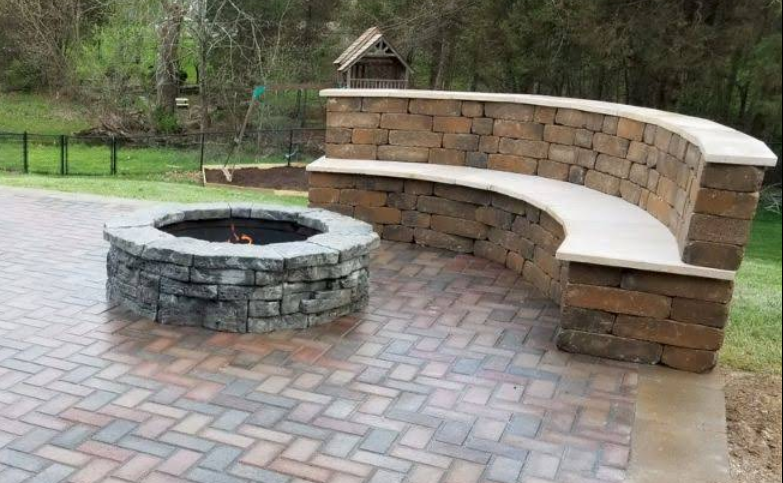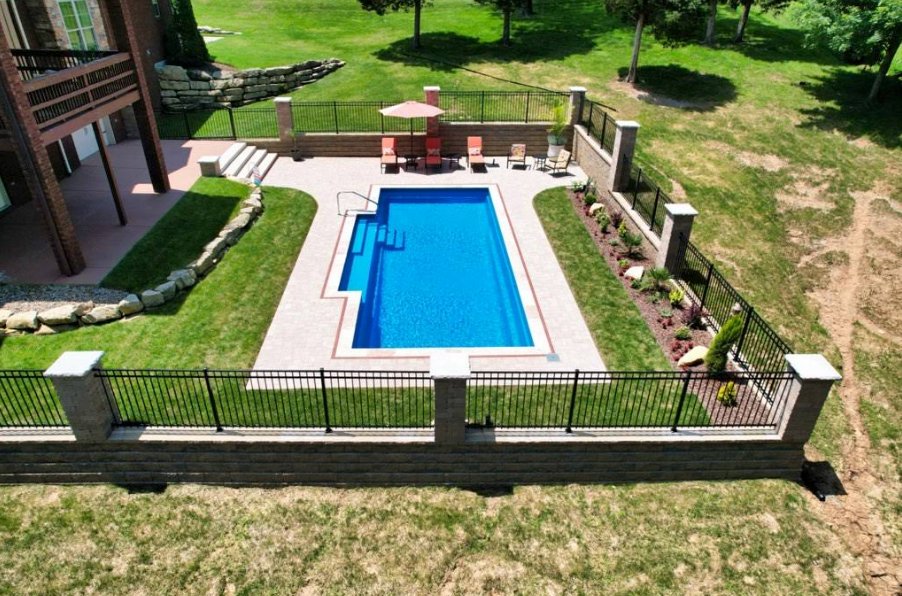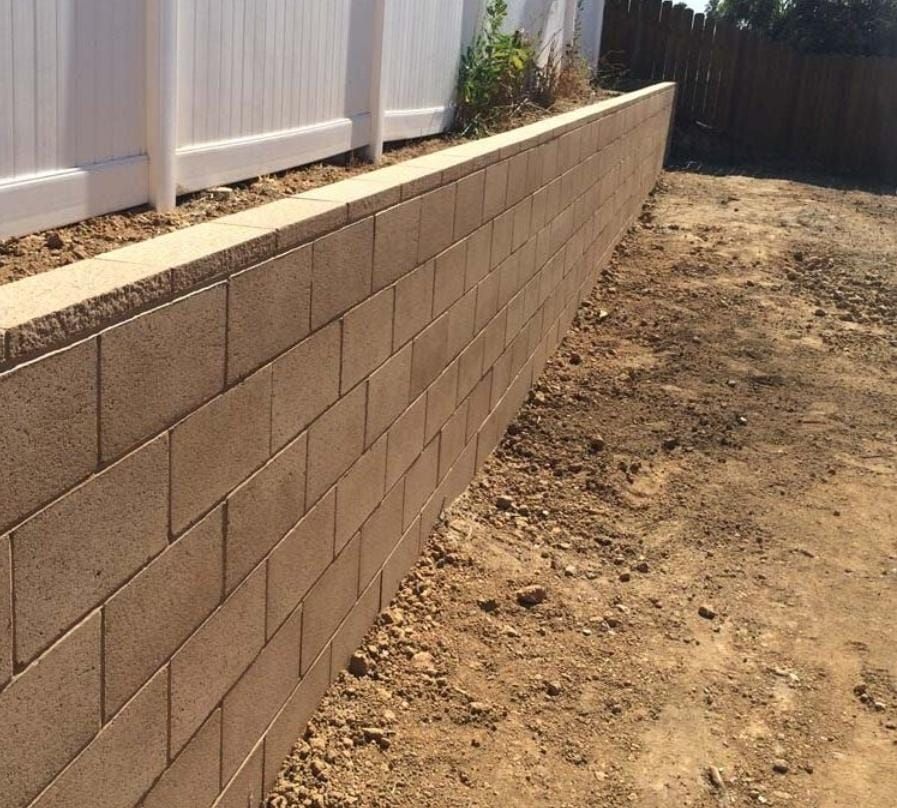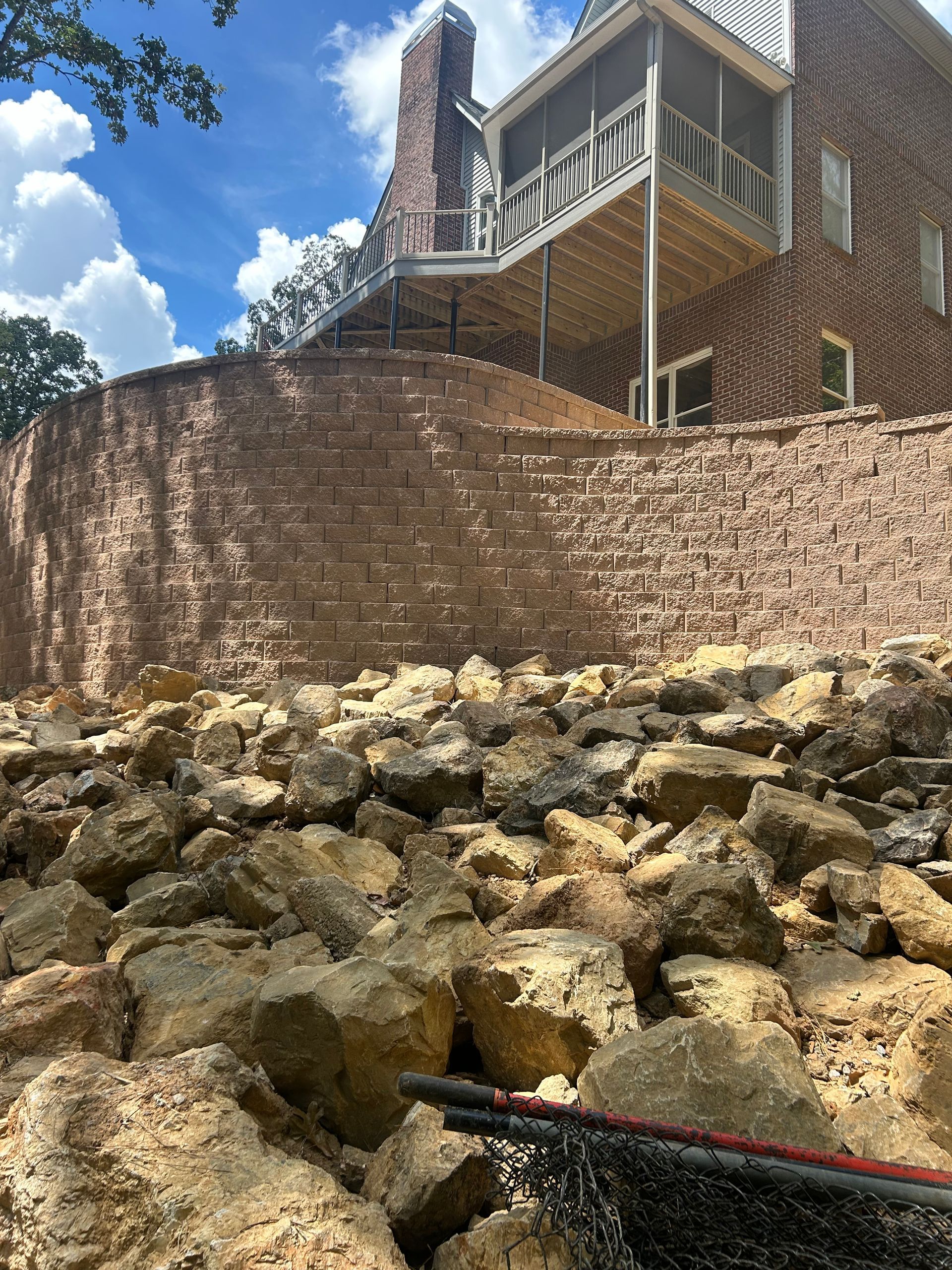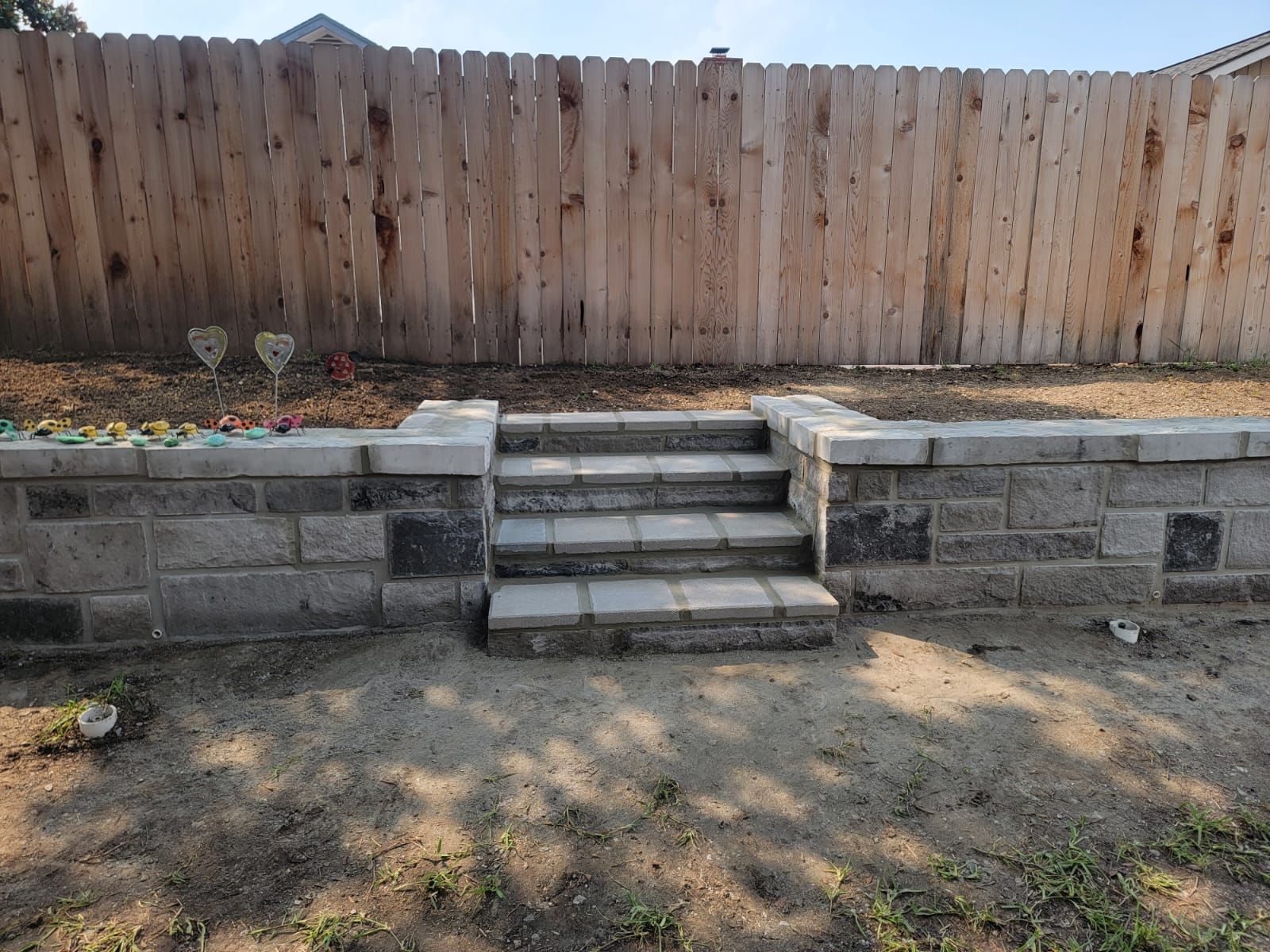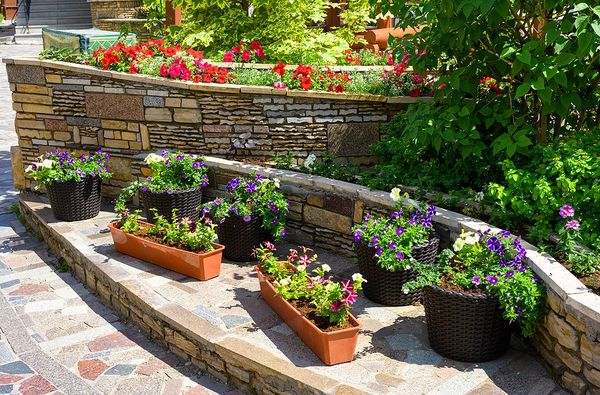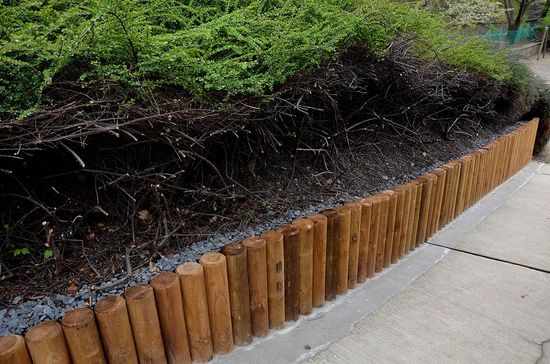LOUISVILLE PRECISION WALLS
Expert Retaining Wall Builder
Licensed Block Wall Contractor

Serving Louisville & surrounding areas
Block, Rock, Concrete, Versa Lok, Railroad Tie & more
Licensed & Insured
All In-House Team: NO SUBCONTRACTORS
Only the Best Materials
Over 200 5-Star Ratings!
FREE QUOTE
FREE QUOTE
If you want to prevent things like oil from sliding and eroding, you need a retaining wall, which is a strong and stable wall or barrier construction with that exact purpose. A retaining wall's primary purpose is to stop soil from pushing on it. Though retaining walls are a fantastic investment that may greatly increase the market value of your home, there is some information you should know before you get started. Retaining wall solutions come in a wide variety of shapes, sizes, designs, and materials. We are here to hold your hand every step of the way and make you feel as though all of the daunting factors you need to consider are the major reason why it is so important that you choose our team of skilled contractors who specialize in this niche art.
About Us
We specialize in expert retaining wall construction for both residential and commercial properties. Our teams have extensive experience in the construction of segmented, wood, stone, and concrete retaining walls. Concrete blocks, boulders, timbers, and stone are just a sample of the various materials we can apply to build innovative and effective retaining walls. Our bespoke designs will wow you while providing you with assurances of value and durability. Whether you are looking for a simple garden wall, a green retaining wall solution, or slope stabilization, our trained staff will be there to help you every step of the way.
Our Services
We are one of the most dependable choices for any retaining wall construction project. We offer not just basic stone, concrete, and wood retaining walls, but also innovative ideas and designs for both residential and commercial customers. Our retaining wall contractors are a solid team that has successfully completed countless residential and commercial retaining wall building services in our area. Our staff always uses the best tools and products for the job to ensure that the project is done right the first time. One of the main reasons our company is popular among commercial and residential property owners is that we offer the best solutions for any concrete retaining wall, stone retaining wall custom retaining walls, and exceptional retaining wall designs.
Contact Us Today
The building of a retaining wall on your commercial or residential property can increase the overall appearance and market value of a property. Precision Retaining Walls of Louisville, Kentucky can help you every step of the way, from coming up with a bespoke design to constructing your retaining wall. We only work with the most skilled professionals in the industry to ensure that the retaining walls we commission are of the highest quality. We have a staff of friendly customer service representatives ready to take your call and assist you with any more information or recommendations you may require about retaining wall designs and construction. In case you have any questions, comments, or concerns, please don't hesitate to contact us via email or one of the given landlines. Talk to our professionals about the design and construction process to get the retaining wall of your dreams.
Frequently Asked Questions
What is the cheapest sort of retaining wall?
An inexpensive type of retaining wall is a poured concrete wall. Though it may differ in specific cities, this type of wall typically starts at under $5 per square foot. The two cheapest types of materials to use for building retaining walls are wood and masonry block.
A wood retaining wall can cost $2,200 to $4,600 if you have it installed by a professional. You can install around 100 square feet of small concrete blocks for $2,000. If you want a larger decorative block retaining wall, it will cost between $2,200 and $4,000 if you have it installed by a professional.
Is a concrete retaining wall cheaper than blocks?
The cost of a concrete retaining wall will vary relying on several factors. Some primary considerations include the size and height of your wall and the location and materials used in its construction. Generally, a concrete wall may be cheaper than blocks if you have a smaller or shorter wall or if you are building on more stable soil.
However, it's integral to remember that additional costs may be associated with a concrete wall that could make it more expensive than blocks. For example, you may need to hire a contractor to pour the concrete and build your wall, which could add significantly to the overall cost.
Assuming you're trying to decide between a concrete or block retaining wall. In that case, it's best to consult a professional contractor who can help you understand the benefits and drawbacks of each option and assess your specific needs and budget. Proper planning allows you to find the perfect wall solution for your property.
How deep should a 3-foot retaining wall be?
The depth of a 3-foot retaining wall will depend on several factors, including the soil type, the regional climate, and other site conditions. A retaining wall should generally sit in at least one foot of compacted base material such as stone or gravel- this will ensure that your structure remains stable and robust.
The height of the wall will also determine how deep it needs to be, with taller walls requiring deeper foundations. Building retaining walls at least 2 feet deep or more is recommended for optimal stability and support.
Do all retaining walls need footings?
Footings are an integral part of retaining wall construction, as they can provide the support needed to keep the wall firmly in place and prevent it from slipping or failing over time.
No, not all retaining walls require footings. Some retaining walls do not have footings and can be constructed using poured concrete or other techniques that attach the wall directly to the ground. If a retaining wall requires footings, it is crucial to ensure that they are appropriately designed and constructed to provide the necessary support and prevent slippage or collapse over time.
The experts at Retaining Wall Louisville can help you with your retaining wall needs, deciding what would be best suited for your particular situation.
